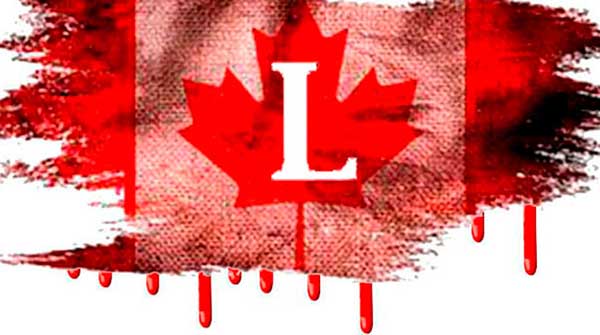Shocker: next year, interest charges on the debt will surpass federal health-care transfers
 Taxpayers should brace for impact based on the finance minister’s latest projections.
Taxpayers should brace for impact based on the finance minister’s latest projections.
Interest charges on the federal debt will go from $47 billion this year to $61 billion in 2028-29, according to the budget update.
But what does $61 billion mean to you?
Sixty-one billion is the same amount the government plans to collect with the GST in 2028-29.
So, in a few short years, when you pay the GST on a hockey stick, a tank of gas or bar of soap, every penny will go to interest charges on the federal debt.
In fact, interest charges will surpass federal health-care transfers next year.
Let the shock sink in just a little deeper: what could we do if it weren’t for the federal debt?
We could virtually double federal health spending.
Or we could completely eliminate the GST in a couple of years.
Somehow, the government is communicating these perplexing projections with considerable calmness.
Finance Minister Chrystia Freeland claims “the foundation of our Fall Economic Statement is our responsible fiscal plan.”
But, last year, the government spent $474 billion. This year, the feds plan on spending $489 billion. By 2029, the government will be spending $595 billion a year.
Pro-tip for Freeland: when you spend billions of dollars more every year, you’re saving money wrong.
And all that spending comes on top of an already ballooned base line. Even before the pandemic, the Trudeau government was spending at all-time highs. And that’s after accounting for inflation and population differences.
Last year’s $35-billion deficit will increase to $40 billion this year. The feds have no plan to balance the budget. And that’s pushing up interest charges.
Again, brace yourself because 2028 federal debt interest charges will cost taxpayers $61 billion. For context, pre-pandemic interest charges were around $20 billion a year.
Meanwhile, if you’re hoping for meaningful tax relief from this government, you shouldn’t hold your breath.
“I absolutely understand that after three difficult years – with a global pandemic, global inflation, and global interest rate hikes – Canadians are worn out, frustrated, and feeling the squeeze,” Freeland said. “What Canadians deserve today is for us to address the very real pain that so many are feeling.”
The easiest and simplest way for Freeland to help Canadians is to stop taking so much money from taxpayers’ wallets in the first place.
But Freeland and Prime Minister Justin Trudeau aren’t even willing to provide the simplest forms of tax relief, like ending the sales tax-on-tax at the gas pumps. The GST on the carbon tax alone will cost taxpayers $429 million this year.
The government isn’t willing to end the anti-democratic escalator that increases alcohol taxes every year without a single vote in Parliament. Next year’s hike will cost taxpayers about $100 million.
The government isn’t even willing to extend the same relief to all Canadians that it gave Atlantic Canadian families and remove the carbon tax from everyone’s home heating bills. The carbon tax on natural gas will cost the average family $300 this year.
The budget update is an admission that the government has a spending problem, but it still isn’t serious about managing our finances or providing real tax relief.
The solution for Trudeau and Freeland should be simple: put down the credit card and pick up some scissors.
Franco Terrazzano is the Federal Director of the Canadian Taxpayers Federation.
For interview requests, click here.
The opinions expressed by our columnists and contributors are theirs alone and do not inherently or expressly reflect the views of our publication.
© Troy Media
Troy Media is an editorial content provider to media outlets and its own hosted community news outlets across Canada.


